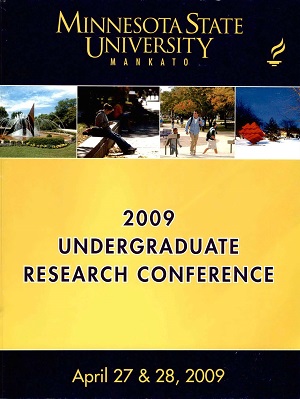Cross-Cultural Survey of Rewards: Differences in Levels of Reinforcement Between Adolescents from the United States, Australia, Tanzania, Denmark, and Honduras
Location
CSU Ballroom
Start Date
27-4-2009 1:00 PM
End Date
27-4-2009 3:00 PM
Student's Major
Psychology
Student's College
Social and Behavioral Sciences
Mentor's Name
Daniel Houlihan
Mentor's Department
Psychology
Mentor's College
Social and Behavioral Sciences
Description
The use of reinforcement (i.e., food, praise, privileges) is an essential component of most behavioral change programs. A recent trend in published research is to assume that certain stimuli are reinforcers for groups of individuals without evidence that this is so. When working with these groups of individuals, determining which stimuli are rewarding for the most individuals in the group can be challenging and time consuming. Past research has also indicated that there is much difficulty in doing behavioral interventions with high school students due to a poor understanding of which rewards are most motivating. This problem is compounded when you try to apply similar interventions across different cultures around the world. The purpose of this research project was to determine what high school students from different regions of the world find rewarding by administering the Survey of Rewards for Teens - 2 (SRT-2) students from the United States, Australia, Tanzania, Denmark, and Honduras. The current researchers found significant differences in the levels of rewards reported by participants based on their cultural identity.
Cross-Cultural Survey of Rewards: Differences in Levels of Reinforcement Between Adolescents from the United States, Australia, Tanzania, Denmark, and Honduras
CSU Ballroom
The use of reinforcement (i.e., food, praise, privileges) is an essential component of most behavioral change programs. A recent trend in published research is to assume that certain stimuli are reinforcers for groups of individuals without evidence that this is so. When working with these groups of individuals, determining which stimuli are rewarding for the most individuals in the group can be challenging and time consuming. Past research has also indicated that there is much difficulty in doing behavioral interventions with high school students due to a poor understanding of which rewards are most motivating. This problem is compounded when you try to apply similar interventions across different cultures around the world. The purpose of this research project was to determine what high school students from different regions of the world find rewarding by administering the Survey of Rewards for Teens - 2 (SRT-2) students from the United States, Australia, Tanzania, Denmark, and Honduras. The current researchers found significant differences in the levels of rewards reported by participants based on their cultural identity.
Recommended Citation
Ek, Kari and Kendra Homan. "Cross-Cultural Survey of Rewards: Differences in Levels of Reinforcement Between Adolescents from the United States, Australia, Tanzania, Denmark, and Honduras." Undergraduate Research Symposium, Mankato, MN, April 27, 2009.
https://cornerstone.lib.mnsu.edu/urs/2009/poster-session-B/13




